Curriculum
“Reason is by study, labor, and exercise of logic, philosophy, and other liberal arts corroborate and quickened; and the judgment . . . much ripened.” (St. Thomas More)
Studies at St. Thomas More Academy reflect a deep commitment to excellent Catholic education. In order for students to meet their highest potential within the STMA program of study, students must attend school regularly without excessive absence. STMA maintains a strict attendance policy. Students who miss school regularly for extracurricular activities (i.e. travel sports teams, club teams, dance companies, etc.) may not be able to continue studies at STMA.
| Middle School | Grade 6 | Grade 7 | Grade 8 |
| Trivium | Spelling & Grammar | Informal Logic | Basic Composition |
| History | Ancient & Classical History | Western Civilization | American History & Government |
| Literature | Great Book 1 | Great Books 2 | Great Books 3 |
| Theology | Great Bible Stories | Jesus Christ | The Catholic Church |
| Language | Introduction to Latin | Latin 1A | Latin 1B |
| Mathematics | Math 6 | Math 7 | Math 8 |
| Science | Earth Science | Life Science | Physical Science |
| Other | Healthy Living Music | Healthy Living Music | Healthy Living Music Topical Elective (2024-25) |
Summer 2023 Reading Requirement – the below list will be updated for the summer of 2024 in early June.
Any edition of the following is acceptable.
6th Grade – Tales of the Greek Heroes by Roger Lancelyn Green
7th Grade – The Adventures of Robin Hood by Roger Lancelyn Green
8th Grade – The Giver by Lois Lowry
-
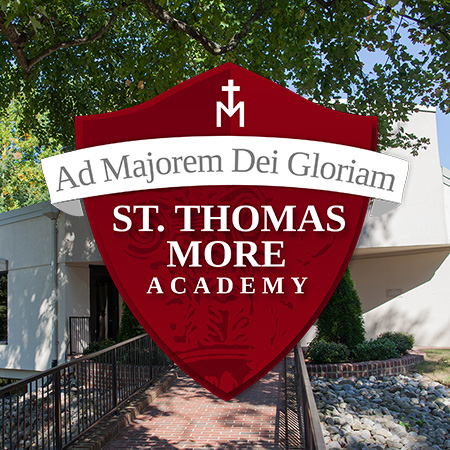
2018, '19, '20, '21 Best Catholic High School in North Carolina*
St. Thomas More Academy is central North Carolina’s top choice for quality college preparatory education in a close-knit and joyfully Catholic school community. STMA offers a committed and talented faculty, a safe and nurturing learning environment, and outstanding college placement support, all for one of the lowest tuition rates in the Triangle.
*According to Niche -
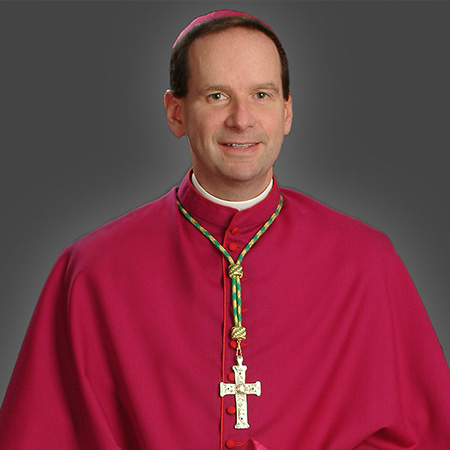
Most Reverent Bishop Burbidge, Bishop of Arlington (Formerly Bishop of Raleigh)
Catholic schools play an essential role in the future of our Church and Diocese. Recognizing that parents are the first and primary educators of their children, Catholic schools enter into a unique partnership with them. STMA is positioned well to assist parents in this endeavor. As a school officially recognized by the Diocese of Raleigh, it is dedicated to the authentic teaching of the Faith and provides families with a valued option in Catholic education. -
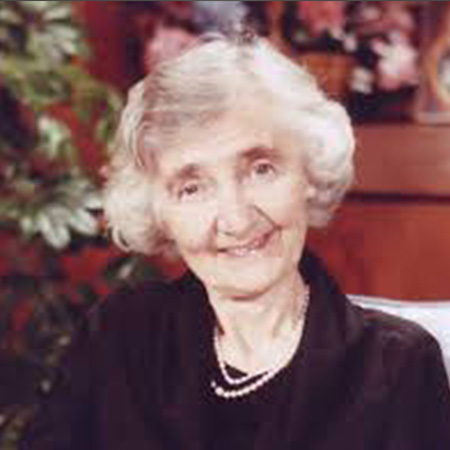
Alice von Hildebrand, Professor of Philosophy Emeritus, Hunter College
God is always calling his people to the vital task of “renewing” authentic education. One enterprise that deserves our special praise and gratitude is St. Thomas More Academy. Thanks to the astounding generosity of its founder, Bob Luddy, and the unswerving efforts of its faculty, it has born rich fruit in its many students. We, both laity and clergy, have a great debt of gratitude to those who pour themselves into creating schools like St. Thomas More. Let us support them in every way possible. And let us not miss the chance to give our children the privilege of a real education. -
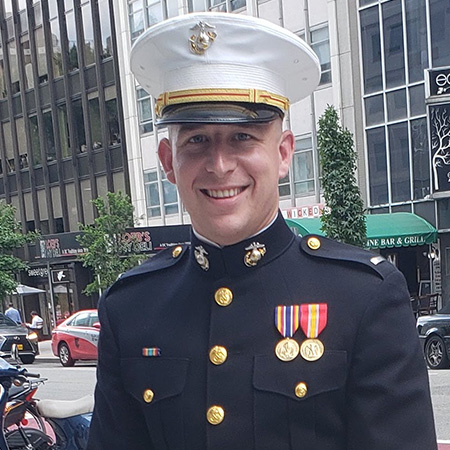
Timothy Moran, STMA '13
"STMA planted in me the desire to never be satisfied with mediocrity but to always strive for excellence and gave me the tools to navigate in a world that demands complacency. I continue to utilize lessons learned at STMA in my personal life and leadership style in the military. Above all, STMA fosters a desire for greatness in students that I don’t see possible in a different environment. I hold this to be the key difference in my upbringing."
1st Lieutenant, United States Marine Corps. -
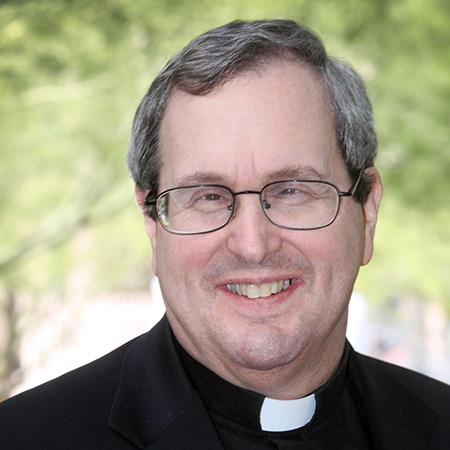
Fr. Robert Spitzer S.J., Ph.D., President Emeritus, Gonzaga University
I’ve had the good fortune to present at STMA on multiple occasions. My subject matter, which draws from contemporary physics and philosophy, can be fairly demanding, but the students not only assimilate the material but ask very perceptive questions. I believe that the STMA faculty is the driving force behind these exceptional young people. I’ve been highly impressed by their knowledge and commitment to the students. For preparing teens to meet contemporary challenges brought about by the interaction of faith and secular culture, Saint Thomas More Academy offers one of the finest secondary programs in the nation. -
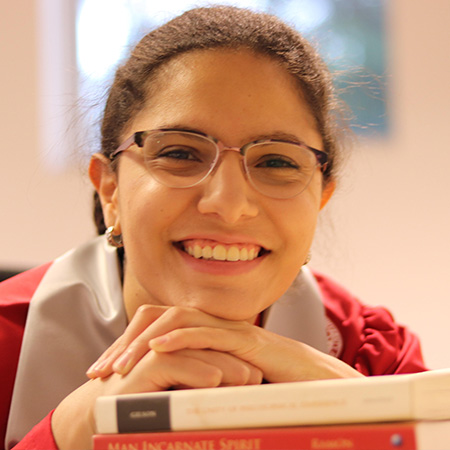
Sarah Dawod, STMA '15
"STMA leaves a mark on the minds of its students by attending to the formation of their intellect, heart, body and soul. My experience at STMA was nothing less than transformative - this is a result of the time and effort each and every one of the faculty members poured into me. "
NCSU '19 Honors Biology with Concentration in Neuroscience, Minor in Health, Medicine & Human Value, University of Pittsburgh, MA Bioethics '21 -
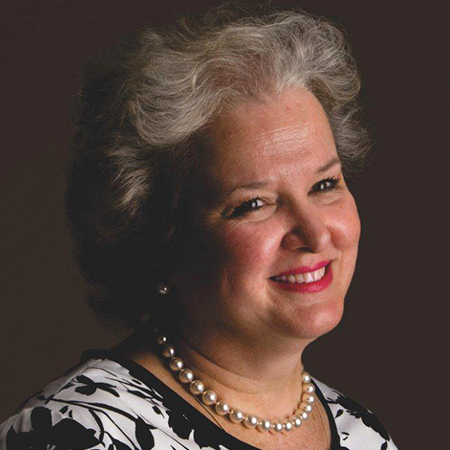
Dr. Anne Carson Daly, President Emeritus, Mount St. Mary College
It’s a breath of fresh air to walk through the doors of St. Thomas More Academy. The administrators and faculty care about educating the whole person. The students are obviously happy to be there [and] are getting a terrific education that emphasizes what counts and what lasts. Spending time at STMA makes me wish that all students could have the opportunity to study there. -
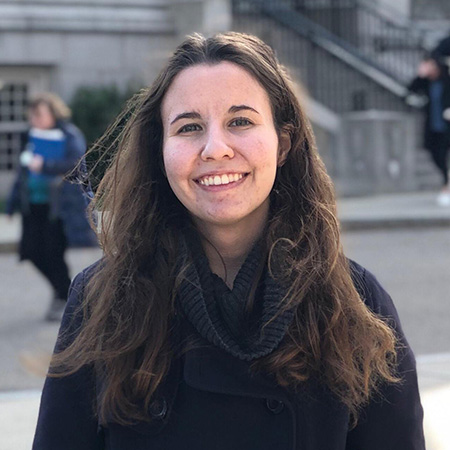
Adriana Watkins, STMA '16
"STMA opened my eyes to the ways in which different disciplines are connected. I'm grateful to STMA for encouraging me to pay attention to the depth and breadth of truth.”
Boston College 2020, Majors in English & French, Minors in Philosophy and Creative Writing -
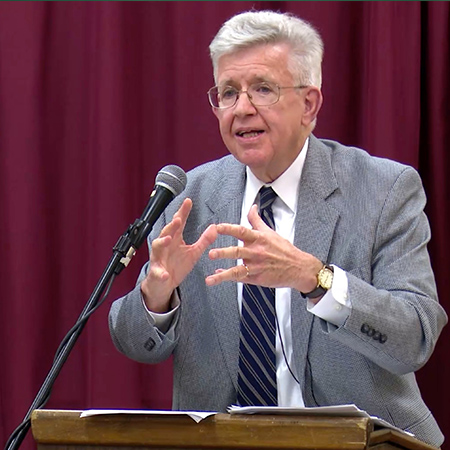
Dr. John F. Crosby, Professor and Chair of Philosophy, Franciscan University
My wife and I visited St Thomas More Academy in 2011, and we were greatly impressed by the politeness of the students. I attended an English class that had almost the level of a college course. I gave a lecture to an assembly of all students, and I was struck by the intelligent and articulate questions I received from them. I went away wishing that I could send my own children to a school like St. Thomas More Academy. -
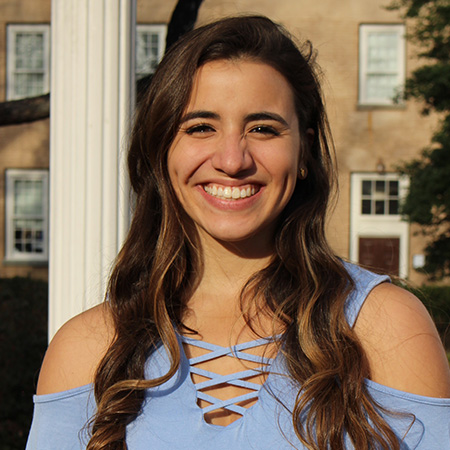
Irene Bethencourt, STMA '17
"I value STMA for its teachers who care about the personal enrichment of each student in and way beyond the classroom. In college, it is almost impossible to have this connection with teachers so I remember it fondly from STMA. It reminds me that there are teachers out there who value more about their students than just their academic performance."
UNC Chapel Hill 2021, Major in Nursing -
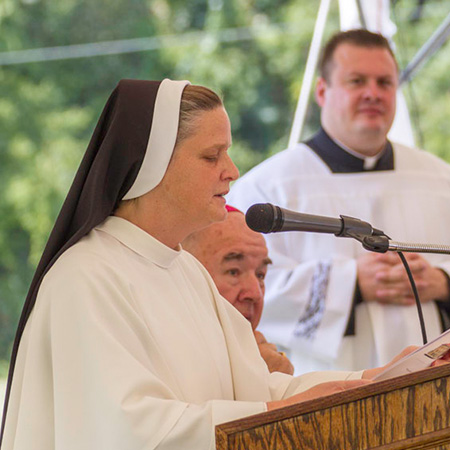
Sister Mary Sarah Galbraith, O.P., President Emeritus, Aquinas College
STMA provides a rich environment that allows each student to flourish and become who they were meant from all eternity to be. In fall 2013 a recent graduate enrolled at Aquinas College. I was able to see a direct correlation between the caliber of teaching and learning in a thoughtful, Christ-centered community and the impact that STMA’s integrated formation had on the young man. He brings his good qualities of mind and heart into every aspect of life and by his example encourages others to follow his lead. -
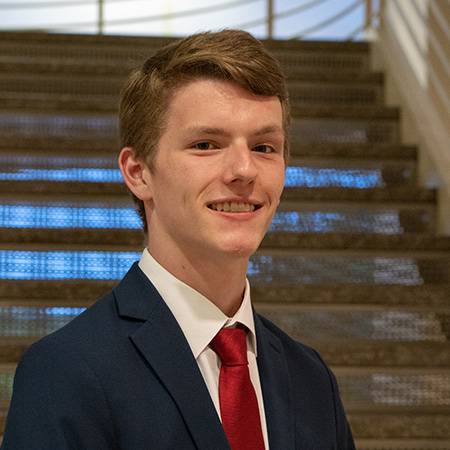
Andrew Mistele, STMA '18
"STMA's community is totally unique in the best way. I formed some of the most meaningful relationships of my life there and grew personally in ways that have prepared me for life and all that comes after high school. As an engineering major, I believe that STMA's liberal arts curriculum taught me to see the world in a different way than most of my peers, which has already proved very advantageous.”
NCSU 2022, Major in Aerospace Engineering, Minor in Mathematics -
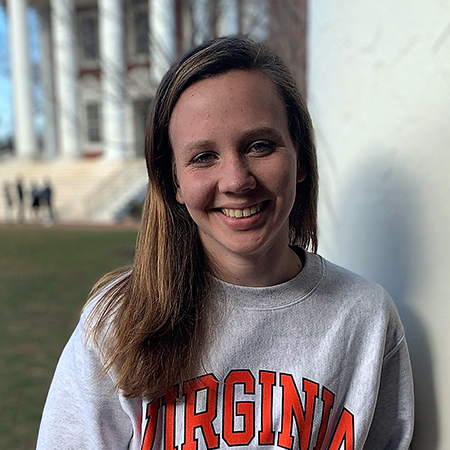
Aubrey Leaser, STMA '19
"St. Thomas More Academy is led by a strong and devout faculty that shares a deep love for the Catholic faith and seeks to bestow the same love in the next generations. In the four years that I spent at STMA, I found assurance in my faith and the knowledge to pursue my interests. I was taught how to think critically and to formulate strong arguments. Since entering college, I have realized that I am better prepared than many of my college peers, both academically and socially. I attribute this to my time spent at STMA, as it was there that I learned to love learning and was given the tools necessary to succeed."
University of Virginia Class of 2023, Major in Biology
3109 Spring Forest Rd
Raleigh, NC 27616


